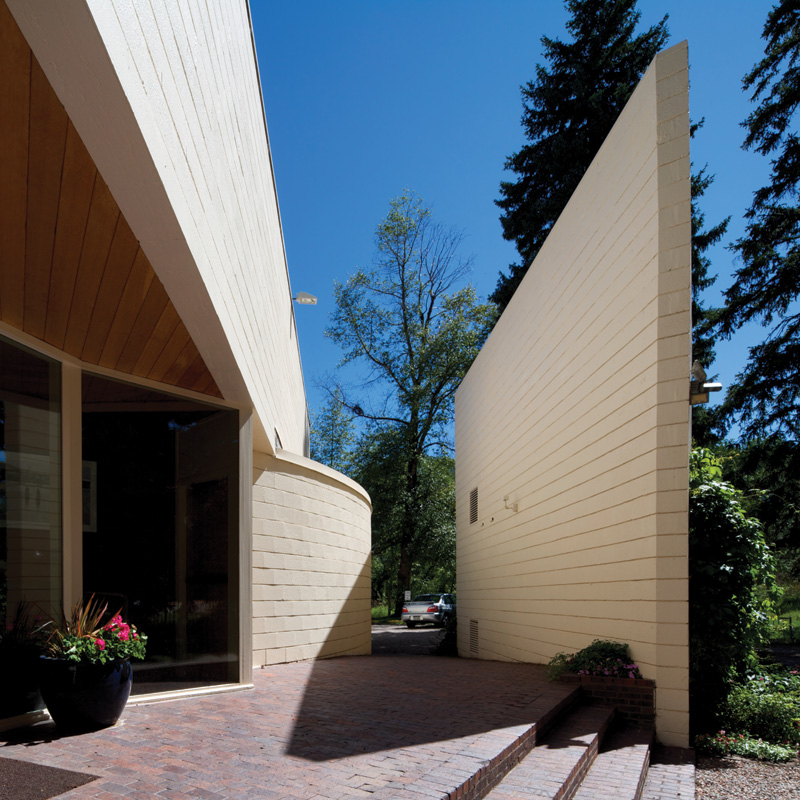Year Listed: 2011
County: Pitkin County
Construction Date: 1972
Threat When Listed: Development
Status: LOST – 2011
Surrounded by heritage trees on a multiple acre lot that overlooks the Hallam Lake Nature Preserve in Aspen, the Given Institute was a modernist architectural masterpiece designed by the renowned Chicago Architect Harry Weese. Best known for designing the Washington DC metro stations, Weese was commissioned by the University of Colorado School of Medicine to design a place where the top medical minds could meet to exchange ideas and present research findings. Built in 1972 on land donated by the late visionary matriarch of Aspen, Elizabeth Paepcke, the Given Institute stood as evidence of the promise of Aspen as a place of big ideas from the world’s greatest artists, thinkers, and leaders. The Given Institute was determined eligible for the National Register of Historic Places as a site of exceptional importance built within the last 50 years.
Faced with the Given Institute’s annual operating deficits of $200,000 the University of Colorado began actievly seeking a buyer for the $17 million property. With spectacular views of Hallam Lake, residential zoning, and location within walking distance of downtown Aspen, the real estate market deemed the site more valuable as empty land prepped for luxury homes. As a result of these offers, the University filed for and received a demolition permit in June of 2010.
There is little doubt that architecture of the recent past is under assault across the country – master works by Weese and his contemporaries are regularly threatened with demolition as communities struggle to address the preservation of historic buildings less than 50 years old. Weese is acknowledged not only as an architect of new construction, but also as a preservationist who was instrumental in saving many historic buildings through sensitive rehabilitation. When questioned about this in a Time Magazine article from July of 1973, he explained the myriad benefits of historic preservation to a community and then added, “...maybe someone will save one of our buildings some day.”
Unfortunately, and despite a valiant effort by local preservationists and city staff, the Given Institute was demolished in 2011 as a condition of sale to a private owner. The University of Colorado used a portion of the proceeds from the $13.8 million sale for a building project on their Anschutz Medical Campus, and the remaining $10 million to fund an unrestricted endowment.




